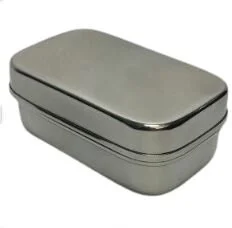Dental Floss



Dental Floss
Eco-Friendly Activated Charcoal and Corn Fibre Dental Floss in a reusable/refillable glass dispenser.
100% biodegradable
Plant based
Corn Floss PLA
Activated Charcoal
Reusable glass bottle
Refills available
Vegan Friendly
30 metres
Home compostable cardboard packaging
How Corn Floss is Made
MiEco corn floss is made of PLA a polylactic acid which is made from corn starch.
It is derived from renewable biomass typically from fermented plant starch like our floss which is made from corn. It is made from the sugars in corn starch. It feels and looks like plastic but is 100% biodegradable and compostable!
The starch is converted into a polymer, the main ingredient in materials that have a plastic-like feel. This is why corn starch bio compostable are sometimes called PLA plastics. PLA plastics are molded the same way conventional plastic is.
PLA is manufactured from renewable sources and is compostable, addressing problems in solid waste disposal and lessening our dependence on petroleum-based raw materials.
How Bamboo Charcoal Floss is Made
MiEco Dental Floss Refills are made from natural charcoal bamboo fibres, Candelilla wax, and peppermint essential oils, which gives them a very mild mint flavour. These bamboo dental floss refills are vegan friendly.
The activated charcoal in the tooth floss refills have powerful toxin-clearing properties, which has proven to remove stains like plaque, red wine and coffee on your teeth. The activated charcoal fibres are soft between your teeth, and won’t scratch off any enamel.
How does PLA compost?
Polylactic acid is a repeating chain of lactic acid. In the composting process, moisture and heat in the compost pile split the polymer chains apart, creating smaller polymers, and finally, lactic acid. Microorganisms in the compost or soil consume the smaller polymer fragments and lactic acid as nutrients. Since lactic acid is widely found in nature, a large number of organisms metabolise lactic acid. The end result of composting is carbon dioxide, water and humus, a soil nutrient. But the effectiveness of this process is dependent on the required temperature and moisture.
Dental Advice:
Dentists recommend you floss your teeth after every meal to prevent any food particles from getting stuck in your gums. If you are only going to floss once a day, opt for night time before you go to bed.








